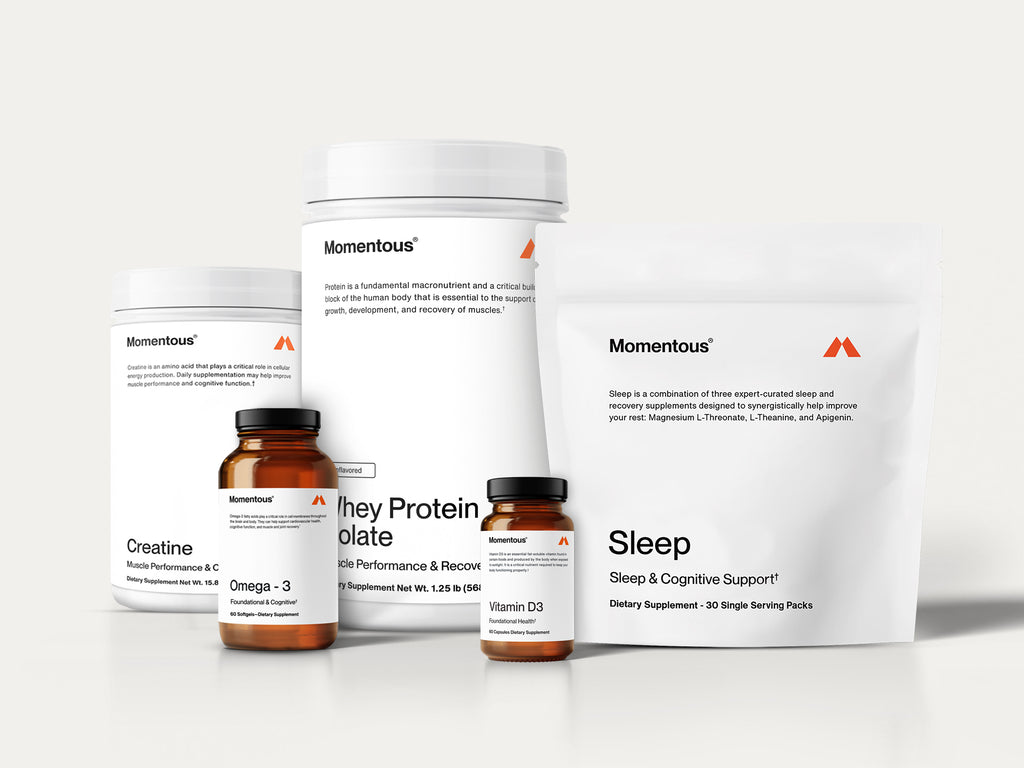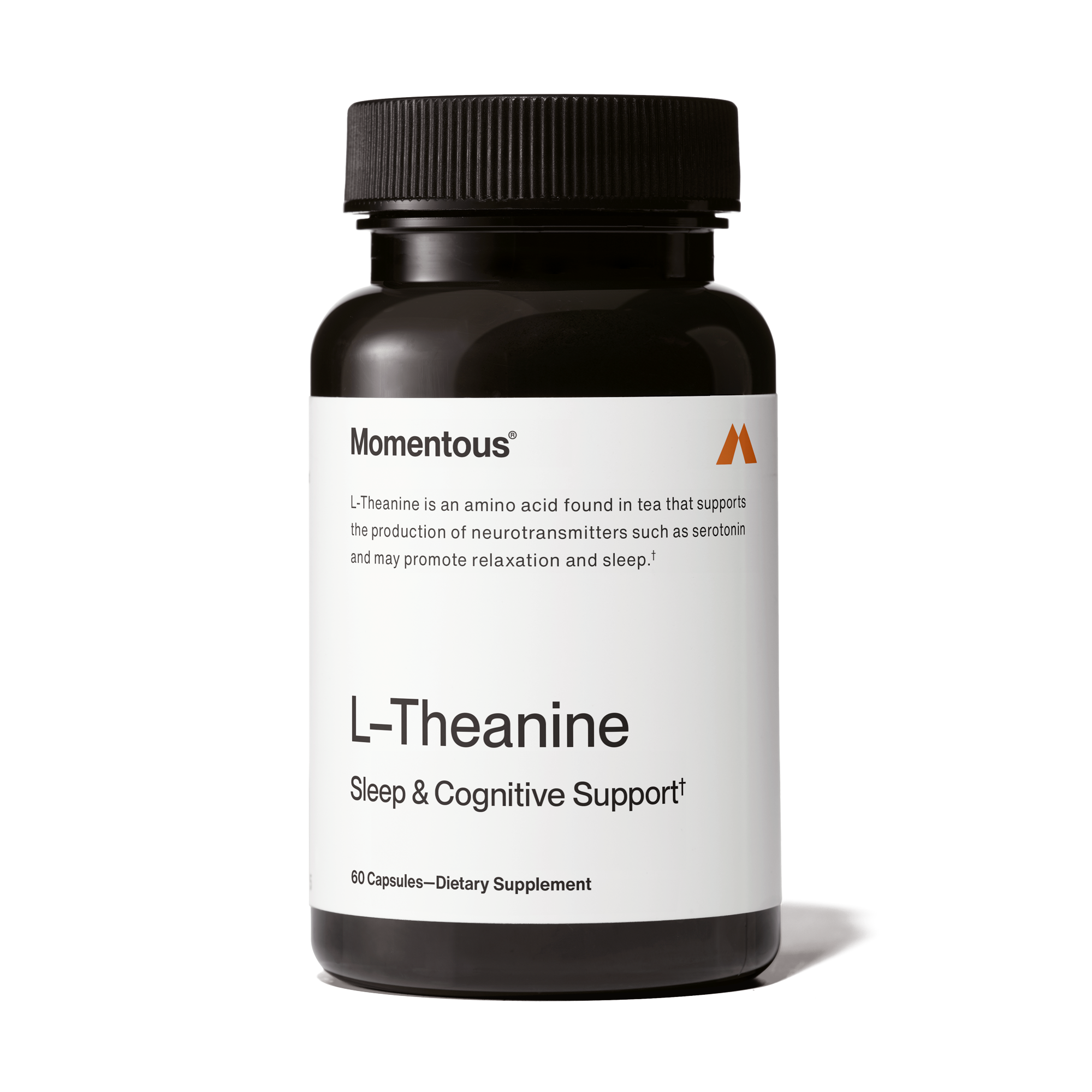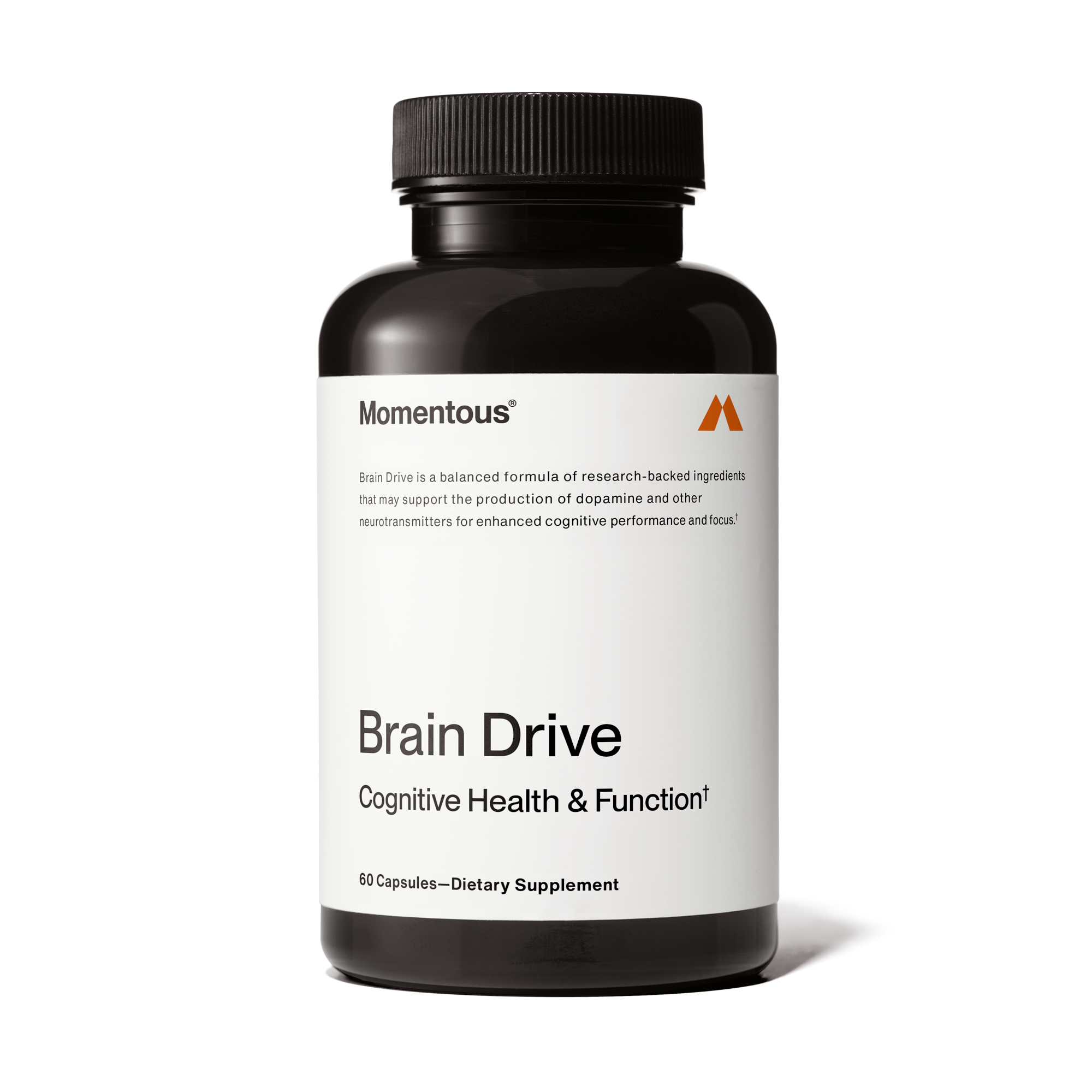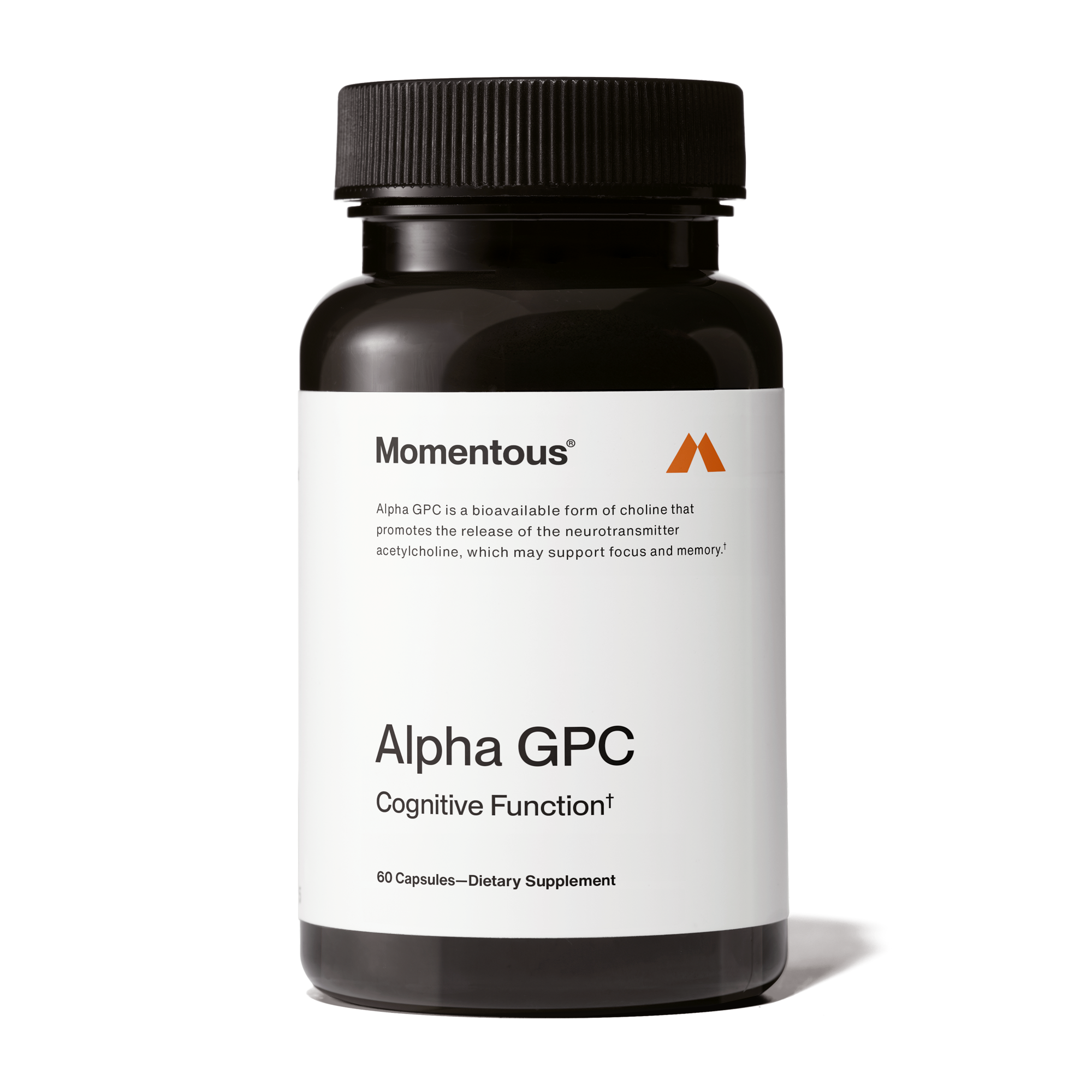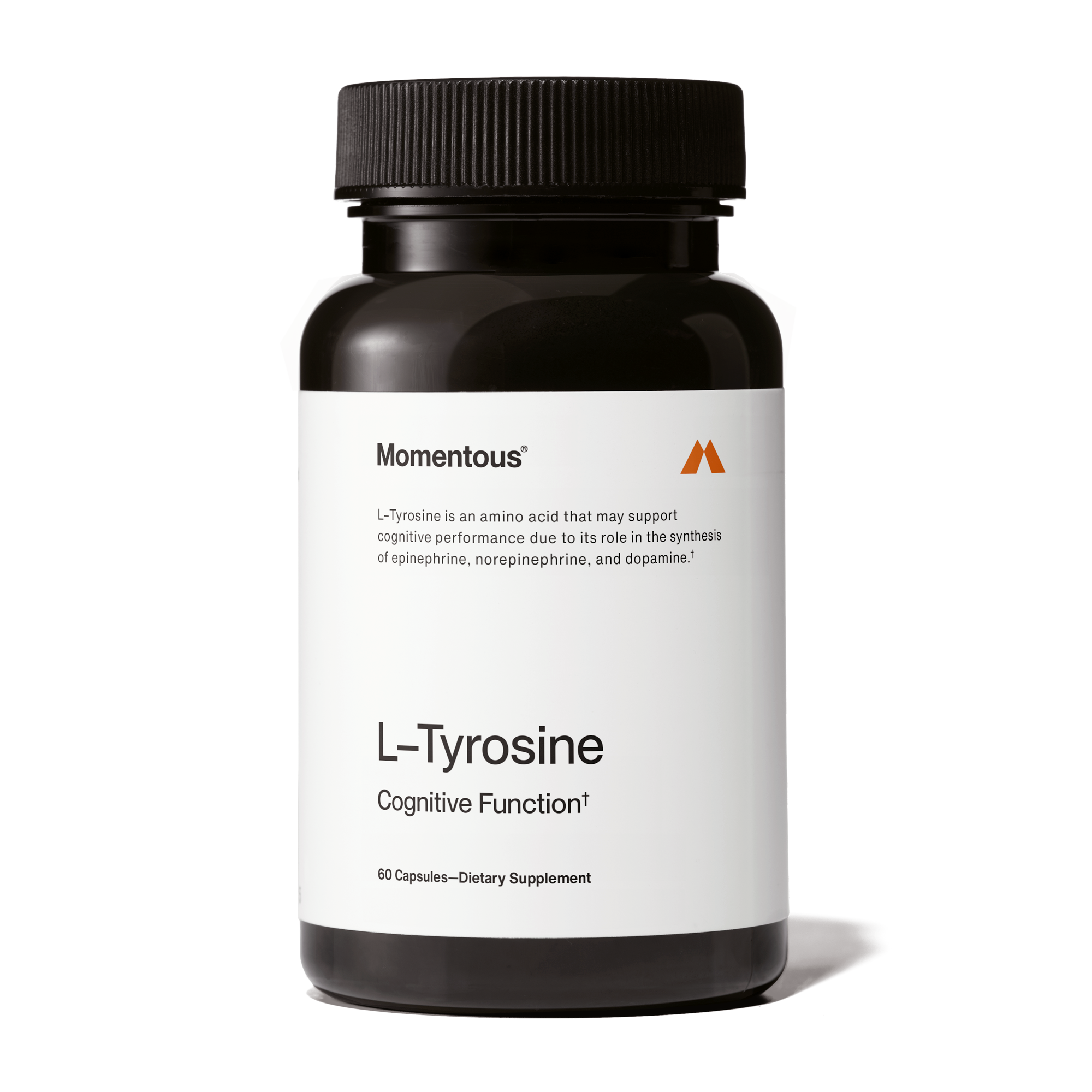Supports calm, focus, and healthy stress response
Daily nootropic blend for clarity, productivity + cognitive function
Choline source that supports memory, focus + brain health
Supports mental performance under stress and fatigue
In an era where optimal performance is no longer a luxury but a necessity, nootropics, often called "smart drugs" or cognitive enhancers, are gaining recognition. But what exactly are they, and how can they help boost your performance? Let's dive in.
Introduction to Nootropics
Nootropics have become a significant component in our pursuit of enhanced cognitive performance. The term itself comes from the Greek words "noos," referring to the mind, and "tropein," meaning "to monitor" (1). These substances, whether naturally sourced like caffeine and ginseng or synthetically created in labs like modafinil and piracetam, claim to positively influence cognitive abilities. Developed and researched for over three decades, nootropics aim to address cognitive deficits by altering the levels of neurotransmitters, hormones, and enzymes in the brain, improving its oxygen supply, and stimulating nerve growth.
While measuring their efficacy remains challenging, nootropics have still found their way into our daily lives, supporting our brain's health and performance in an increasingly demanding world.
Benefits of Nootropics
Nootropics offer a range of potential cognitive and physical benefits. They can help enhance your concentration, making those long study or work sessions more productive. They also support memory and learning, helping you absorb and recall information more efficiently. And when it comes to energy and alertness, nootropics like caffeine can always help, while a nootropic like modafinil is like a supercharged cup of coffee without the jitters. Some nootropics can even help manage stress and anxiety, promoting a greater sense of calm and well-being. Whether you're a student, a professional, an athlete, or just someone looking to optimize their mental performance, nootropics could offer the boost you need
Types of Nootropics
Nootropics can be broadly categorized into three groups:
Natural Compounds: These are derived from plants and include caffeine, L-theanine, ginseng, Bacopa monnieri, and ginkgo biloba.
Synthetic Compounds: These include piracetam, modafinil, and racetams, created in a laboratory to enhance cognitive function.
Prescription Drugs: These are usually prescribed for conditions like ADHD and include drugs like Adderall and Ritalin.
Regardless of the category, each type of nootropic offers unique benefits, with some even demonstrating synergistic effects when combined. As you explore the world of nootropics, remember that the goal is to find the right balance that suits your needs and supports your cognitive health.
How to Get the Most out of Nootropics
To maximize the benefits of nootropics, here are some practical tips to follow that can enhance their use:
-
Choose high-quality supplements: Not all nootropics are created equal. Look for products made with high-quality ingredients tested for purity and potency by a certified 3rd party.
-
Follow dosing instructions: Adhere to the recommended dosing instructions for the nootropic supplements you're taking, and don't try to "supercharge" your regimen by taking more than suggested.
-
Cycle your use: To avoid tolerance and dependence, take breaks from using nootropics, allowing your body to reset. This practice also ensures the effectiveness of the nootropics remains consistent, so you continue to reap the benefits without needing to increase your dosage over time.
-
Stack your nootropics: Some nootropics work better when taken together, so consider combining them for maximum effect. It's not about randomly mixing them up but about creating a thoughtful blend that complements your unique cognitive needs and goals.
Potential Risks and Limitations
Like any substance, nootropics also come with potential risks and limitations. Some nootropics can interact with prescription medications, so consult a healthcare professional before beginning a nootropic regimen. And while there is promising research on the short-term effects of nootropics, long-term safety and effectiveness are still under investigation.
One More Tool for Optimal Performance
In the quest for cognitive enhancement, nootropics can be a valuable tool. They offer various potential benefits, but it's crucial to approach them responsibly, being aware of their limitations and potential risks. If you're ready to boost your cognitive performance, explore our high-quality nootropic supplements and find the perfect fit for your needs.
----
(1) Colucci, L., Bosco, M., Rosario Ziello, A., Rea, R., Amenta, F., & Fasanaro, A. M. (2012). Effectiveness of nootropic drugs with cholinergic activity in treatment of cognitive deficit: a review. Journal of Experimental Pharmacology, 4, 163–172.


